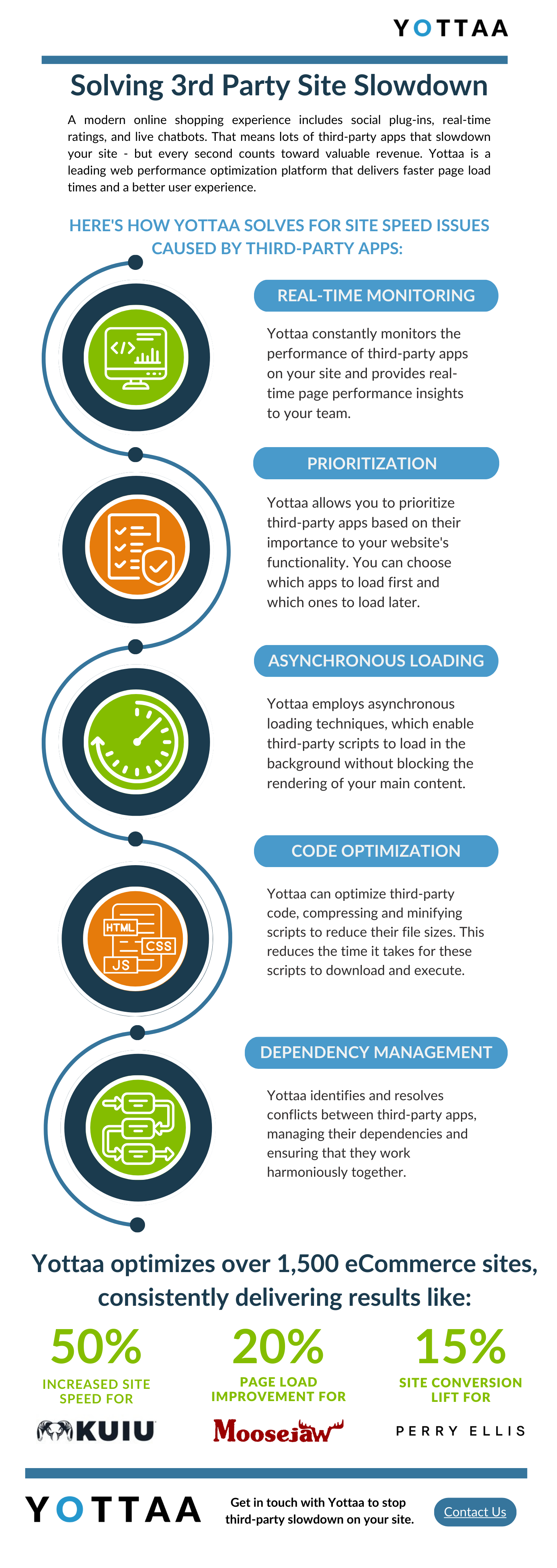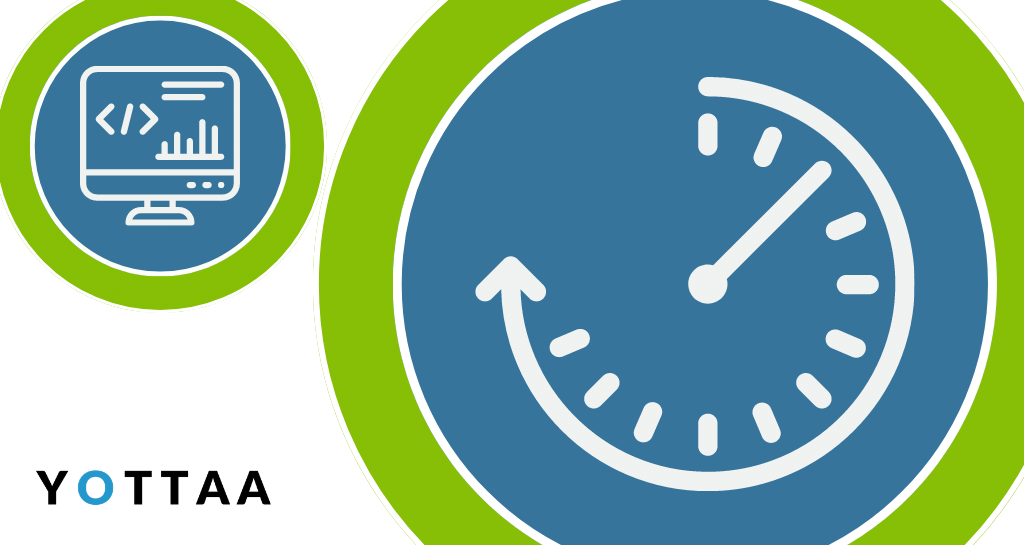Would you rather shop on a website that loaded instantly but delivered a lackluster experience? Or a sleek site that took 5 seconds to load between pages?
Ecommerce teams are considering this question every day, particularly as they prepare for the peak holiday shopping season. They’re tasked with providing a modern, seamless experience for their shoppers, but they can’t bog down their sites with too many scripts and/or code that will impact site speed. There’s a critical tipping point to avoid, because when a page takes longer than 4 seconds to load, over 60% of online shoppers will bounce from the site. That’s where site optimization tools like YOTTAA come in.
In this post we’ll cover the most common types of third-party applications, what problems they can cause your site, and how YOTTAA can help.
What Are Third-Party Applications?
Meeting the expectations of today’s online shoppers requires support from third-party applications. Third-party applications are lines of code provided by a vendor other than the manufacturer of the device. These apps, also known as widgets or scripts, improve the functionality and shopping experience on a retail site. Nearly every online shopping experience is supported by some type of third-party application – without the customer even knowing it.
Here are some common examples of third-party applications used to deliver a better online shopping experience:
-
Social Sharing – Pinterest, Instagram, Facebook
-
Coupons/Discounts – Honey, BeFrugal, Rakuten
-
Security – CookiePro, Kaspersky, Norton
-
Payment Processing – American Express, Klarna, Stripe
Why Are Third-Party Applications Important?
Technology in the retail space continues to advance as retailers are considering how to blend the physical store experience with the online one. According to CIO.com, integrating data from both online and in-store shopping experiences will be key for retail growth in the future.
And online shoppers today already expect a top-notch experience. They want to be able to browse, search products, view detailed images, read reviews, access discounts and free shipping, and most importantly, make a quick purchase. And if a retailer isn’t providing a seamless experience for all of this, they can expect their competition is. So why can’t retailers load up their page with all the bells and whistles and call it a day? Their impact on site speed.
Why Do Third-Party Applications Slow Down Your Website?
Adding new widgets and scripts to an ecommerce page might deliver a more modern experience, but it also opens the door to a whole range of issues that ultimately lead to a slower site. Here are some common reasons why third-party applications slow down site performance:
1. Increased HTTP Requests
Each third-party app typically requires additional HTTP requests to external servers, leading to long load times as the browser fetches data from multiple sources.
2. Blocking Render
Third-party scripts can block the rendering of a webpage until they are fully loaded, causing delays in displaying content.
3. Script Execution Time
Some third-party apps have poorly optimized code or long execution times, causing delays in the overall page loading.
4. Dependencies and Conflicts
Multiple third-party apps may have conflicting dependencies or interact in unexpected ways, further hampering performance.
These challenges come into consideration for nearly every third-party application available to retailers today. You can understand the breadth of the issue by reading YOTTAA’s 2023 eCommerce Technology Industry Report, where over 600 third-party applications were evaluated and uniquely ranked by their impact on site speed. Retailers in particular are looking for ways to reduce the impact of third-party code or applications.
It’s a common problem that YOTTAA was built to solve.
How YOTTAA Optimizes Third-Party Apps
YOTTAA is a leading web performance optimization platform that addresses the challenges posed by third-party apps, ensuring faster page load times and an improved user experience. Check out the infographic below to understand how YOTTAA can reduce the impact of the third-party code and applications on their site.

The installation of third-party apps is a must, but these applications can significantly impact page load times and user experience. Web teams need to figure out how to reduce the impact of third-party code, to provide the experience that shoppers expect. By leveraging YOTTAA, ecommerce teams can ensure their websites load faster, engaging shoppers more quickly and ultimately drive better conversion rates.

